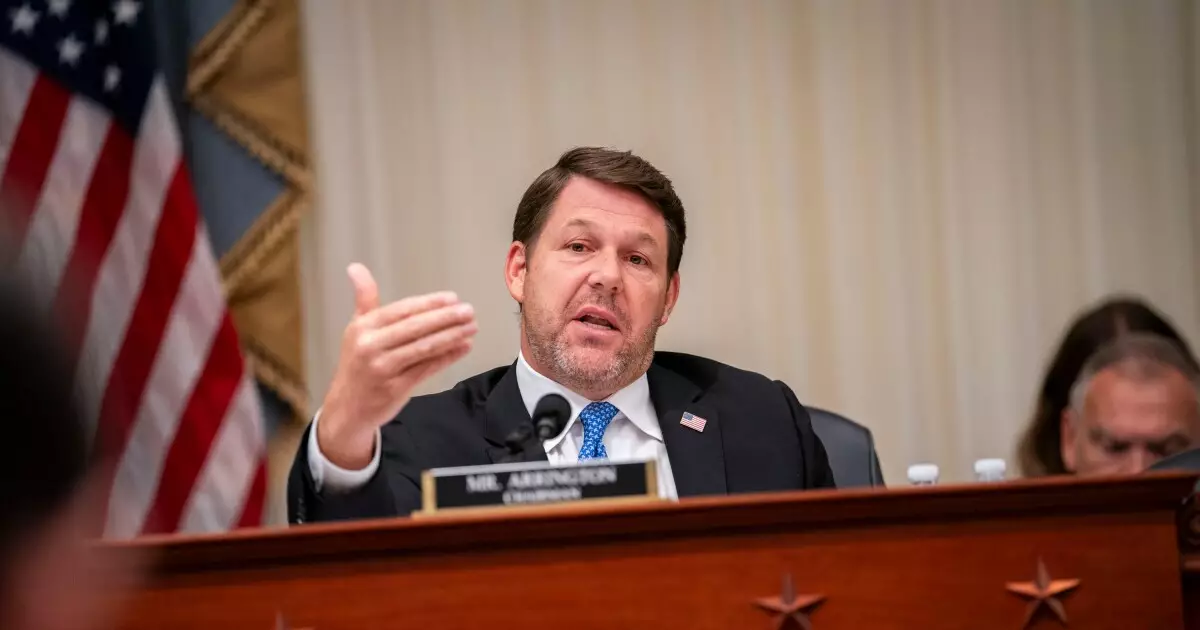As the U.S. House of Representatives prepares to deliberate the fiscal 2025 budget resolution, we find ourselves at a critical juncture that could set the tone for years to come. This resolution, having sailed through the Senate under the cover of night, is being met with resistance by conservative lawmakers who are far from pleased. The skepticism surrounding the budget isn’t just a typical partisan squabble; it reveals deeper concerns over fiscal responsibility and the long-term implications for American taxpayers. The central issue at hand is whether this budget will genuinely address our nation’s economic challenges or if it is merely a façade for preserving the status quo.
Funding priorities and fiscal discipline should serve as the backbone of any budget resolution. However, this Senate-backed proposal has drawn criticism for opting for a “current policy baseline model.” By zeroing out the costs associated with extending the Tax Cuts and Jobs Act (TCJA), this approach appears to bypass necessary fiscal accountability in favor of political expediency. In essence, we risk setting a precedent where future fiscal decisions can be manipulated to suit political narratives, rather than grounded in realistic assessments of revenue and expenditure.
The Risk of Eroding Municipal Bond Tax Exemptions
For those of us who closely monitor municipal markets, the looming threat of limitations on the municipal bond tax exemption is alarming. As lawmakers wrestle with the budget to offset escalating costs, it’s becoming increasingly plausible that vital tax exemptions, which have historically provided states and cities with financial breathing room, could be endangered. This scenario raises a critical question: can we afford to undermine essential financial tools that provide local governments with the ability to fund critical infrastructure and public services?
If the municipal bond exemption is curtailed, the ramifications could be devastating for local economies. Higher borrowing costs leading to reduced investment in essential services such as public education, transportation, and healthcare will undoubtedly place an additional burden on taxpayers. This reckless gamble not only risks local fiscal health but also undercuts the very communities that the federal government claims to support.
A Fractured GOP: The Price of Disunity
The narrow margin by which the GOP holds control means that every vote counts—yet fractures within the party threaten to derail crucial legislation. With House Speaker Mike Johnson appealing for unity, one can sense an almost palpable tension. The irony is that the very fiscal conservatives who are traditionally the guardians of budgetary prudence now find themselves at odds with their own party dynamics. The Senate’s budget proposal may have a chance, but only if they choose to ignore the significant reservations voiced by influential conservatives like House Budget Chair Jodey Arrington.
When members of the House express their deep disappointment in the Senate’s budget as “unserious,” it’s clear that this is more than an individual stance; it reflects a larger crisis of confidence within a party that should find common ground on fiscal matters. Can we expect a cohesive approach to governance when members openly dissent about fundamental principles? The cost of inaction or half-measures will always fall disproportionately on the shoulders of American families.
The Specter of Ballooning Deficits and National Debt
Underpinning all these discussions is the stark reality of increasing national debt. The Senate’s version of the budget includes a staggering limit on the debt ceiling, raising it by a jaw-dropping $5 trillion. This approach invites skepticism and concern about whether we are genuinely committed to tackling the deficit or merely kicking the can down the road. The alarming statistic that the actual deficit could soar as high as $5.7 trillion over ten years should send shivers down the spine of every responsible taxpayer.
As our nation grapples with economic challenges, policymakers must embrace a more disciplined approach. It isn’t just about putting together a budget; it’s about having the courage to instate policies that truly reflect the fiscal realities we face. Voters deserve a budget that prioritizes sustainable growth over triggering policies that could push us further into the depths of fiscal chaos.
A Call to Action: The Time for Serious Reform is Now
The concourse of budget negotiations that we are entering demands not only the collective wisdom and vigilance of lawmakers but also an awakening among the electorate. The stakes are far too high for complacency. As citizens, we are entrusted with the responsibility to engage, question, and ultimately hold our leaders accountable. The future of our economy hangs in the balance, and a reticent electorate will only embolden the status quo, which we have seen is riddled with cracks.
As this budget resolution stirs the cauldron of fiscal and political intrigue, it is our obligation to scrutinize and demand better of our representatives. The time for half-hearted measures has passed; now is the moment for unequivocal commitment to a budget that puts American families first. Amidst political strife and economic uncertainty, it is critical for us to rise above the turmoil and advocate for fiscal responsibility that prioritizes our collective well-being.


Leave a Reply